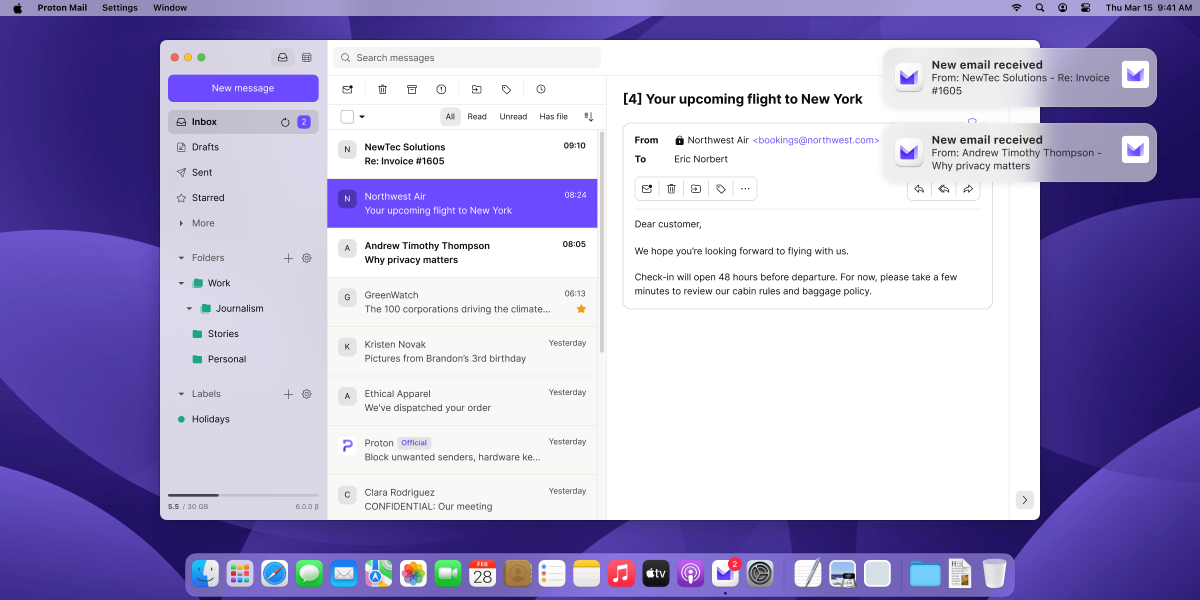Proton Mail, the end-to-end encrypted (E2EE) email service from Swiss company Proton, has officially launched its dedicated desktop app after three months in beta.
However, the company has made the decision to only allow paying subscribers access to the desktop app, despite previous claims that it would be available to all users in early 2024.
“After a highly positive response during the beta phase, we’ve decided to keep the desktop app exclusive to premium subscribers to ensure the best service quality, given the significant infrastructure and maintenance demands,” a spokesperson explained to TechCrunch.
In addition to the desktop app, Proton is also launching a beta version of its standalone Linux desktop app.
Fun Fact: Proton Mail has been available for desktop users since the company began, first through the browser and more recently through a “bridge” that allowed access through third-party desktop clients like Apple Mail and Outlook.
But with today’s announcement, Proton Mail now has a dedicated Windows and macOS app, providing the ability to cache emails and access them offline. Users can even access Proton Mail directly from their desktop dock or Start menu.
On top of this, the app also includes Proton’s encrypted Calendar service.
Show me the money: For Proton, keeping the desktop app behind a paywall is a strategic move to encourage more premium signups. The app is a highly useful product for many people’s day-to-day lives and is worth paying for.
However, it is worth noting that the company had previously stated that the client would eventually be available to all users, including those on the free plan. This backtrack may cause some frustration among the Proton community.
To try out the desktop app, users will have to sign up for a 14-day free trial. After that, they will need to choose one of Proton’s premium plans, which range from €8 to €13 per month depending on the length of the commitment. These plans also unlock access to all of Proton’s other products, including cloud storage, a VPN, and password management.
It’s possible that Proton may change its mind in the future, based on user feedback.
“We remain open to broadening access in the future, though we do not have any specific plans to do so in the short term,” the Proton spokesperson stated. “We’re committed to continuously evaluating our offerings based on our users’ feedback and needs.”








